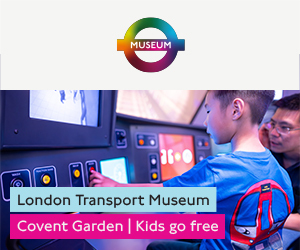Primary Times - the definitive what’s on and where to go family guide of activities and events for children of primary school age. Things to do with your kids during the school holidays including arts and craft activities, music and theatre for children, parties, competitions, days out, and family attractions along with term time drama schools, dance classes, after school clubs and sports activities. Things to do at a place near you!
Harnessing the Power of AI in Education: Insights from Mrs C Buckler, Edtech Lead at Sydenham High School
As Sydenham’s Edtech lead, I am passionate about providing pupils with the digital literacy skills they need to thrive within school and beyond, as well as facilitating the use of educational technology for impactful learning experiences in the classroom. I feel very lucky to have this role at a time of significant change and innovation in technology globally. In particular, I have had the opportunity to attend several leading conferences about AI in education, hearing from professionals such as Professor Rose Luckin, Sir Anthony Seldon and Priya Lakhani OBE. I also have the privilege of being a Co-Chair of the GDST’s AI Committee, helping to drive innovative work across the GDST and ensuring that we remain at the forefront of education here at Sydenham High.
Whilst Artificial Intelligence (AI) has been around for many decades, the launch of ChatGPT in November 2022 represented a significant watershed moment in the adoption and integration of the technology into society more broadly. This trend is set to continue as generative AI technology continues to advance apace. It has rapidly become a particularly hot topic in education, initially at university level but increasingly within schools. We have kept a close interest in this nascent field to ensure that we can continue in our rich history of offering a pioneering education to young women. As part of my professional interest in the field, I am currently undertaking research for a doctoral thesis that focuses on the appropriate adoption of AI in education. I am clear that we need to implement AI in a way that is pedagogically informed, not driven by the hype generated by commercial imperatives of big tech companies.
Our vision at Sydenham is to equip our pupils with the necessary skills they will need to flourish in their chosen future pathways. This includes developing confidence in digital skills; an important aspect of this is now AI literacy. We aim to ensure our pupils have the knowledge and skills to thrive in an AI-driven world, including an understanding of its limitations and ethical considerations as well as its strengths and how to best harness its power. However, we need to balance this carefully with ensuring that our pupils remain astute learners and are well-prepared for their external examinations and further study.
AI has already been added to our PSHE programme to ensure that pupils are well informed about how generative AI is trained, including the potential limitations and ethical implications of its use. We are also running an innovative workshop for Year 10 pupils as part of our Mind, Body and Soul Day in February. This will explore AI in more detail and culminate in an AI hackathon, where pupils work in groups on a range of challenges to determine the utility and validity of Large Language Models (LLMs) such as ChatGPT and Google Gemini.
I have worked closely with staff and pupils to develop innovative guidelines for the appropriate use of AI. When teachers set tasks, they will indicate the level of AI use that is appropriate—ranging from ‘no AI’ to ‘full AI’, with other levels such as ‘AI planning’ and ‘AI collaboration’ also possible. These levels have clear guidance about what parts of a task AI may be used for, as long as it is properly referenced. This will allow pupils to develop appropriate AI skills while ensuring they do not use AI in ways that could hinder their learning or future success.
Rather than outlawing AI, we are building an open and collaborative learning environment where staff can guide pupils in its appropriate use, while maintaining high expectations around tasks where AI use is not appropriate. This guidance applies to all pupils. In line with our policy, younger pupils below the age of 13 will not be set any tasks involving AI and will instead focus on strengthening foundational skills. Our guidelines will be shared with all pupils over the coming weeks in a whole school assembly, and further information will be made available on SydConnect, our digital learning platform.
One key element of the AI strategy I have developed is investing in building staff confidence. Staff have had several training opportunities to develop AI literacy and explore its use hands-on while also critically evaluating its potential and limitations—such as bias and hallucination. The aim is for staff to confidently guide our pupils in the appropriate use of AI and help drive our mission to empower future-ready young women, equipped with the skills to counter the dominance of the ‘tech bro’ narrative.
I believe that our proactive and thoughtful approach to AI in education sets a powerful example for other institutions. By embracing this technology with a strong foundation of ethics, critical thinking, and a sense of responsibility, we are not just preparing students for the future—we are actively shaping it.
Mrs C Buckler
Edtech Lead | Co-Chair GDST AI Committee | Head of Geography | Google Certified Educator Level 1 & 2 | EdD student researching GenAI in education | MA Education (Distinction) and currently studying for a Doctorate of Education at University of Bath





